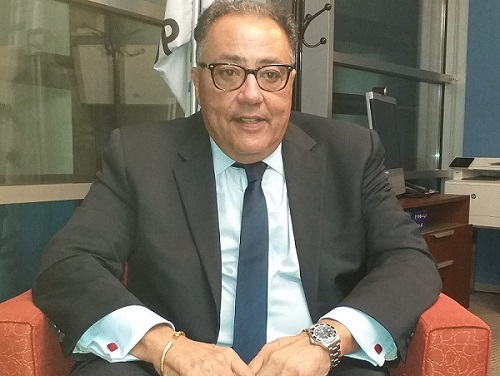The World Bank’s Vice-President for Africa, Dr. Hafez Ghanem, has advised government to be balanced in its intention to adjust tax exemptions granted foreign companies in order not to discourage Foreign Direct Investment (FDI).
Though it is important for Ghana to boost its domestic revenue mobilisation in order to realise the president’s vision of a Ghana Beyond Aid, Dr. Ghanem advised a cautious approach.
“In Africa in general, and in Ghana, we see that we have very low levels of revenue mobilisation. In Ghana today revenue is about 14 percent to GDP. In developed countries it is about 45 percent or even more to GDP. So, you need to develop your domestic resources because you need to finance and provide public goods to your population, and you do that through domestic resource mobilisation. And when the president talks about Ghana Beyond Aid, it will succeed by mobilising domestic resources to replace foreign aid.
“But on the other side, also, you want to have a tax regime or tax policy that encourages private investment, because you need to grow and create jobs for your population. Ghana is actually one of the countries in Africa that is growing.
“And it is so because there is a lot of private investment and confidence in the Ghanaian economy. So when you put together tax policies, one objective should be domestic resource mobilization, and on the other hand you also want to maintain an environment that is attractive for the investors,” he said.
Government has consistently fell short of its domestic revenue target over the years. The domestic revenue target for the third quarter of 2018, for example, fell short by 9.5 percent, with GH¢31billion realised out of a projected GH¢35billion.
A major reason ascribed to the low domestic revenue performance is the many tax exemptions granted foreign companies and diplomats. With regard to this, President Nana Addo Dankwa Akufo-Addo, in his State of the Nation Address in February this year, said his government is considering making adjustment to some of those tax exemptions.
Tax exemption in respect of import duty, VAT, NHIL, and domestic VAT is estimated to have grown to GH¢4.6billion – representing 1.6 percent of GDP in 2018.
These figures do not include exemptions from the payment of corporate and individual income taxes, concessions on tax rates, petroleum tax reliefs, Customs tax exemptions enjoyed by diplomatic missions, and waivers of processing charges at the ports.
“This is not sustainable, and we intend to do something about it to reverse the trend, by introducing suitable measures which may disrupt the easy and comfortable arrangements that many have become accustomed to – but we have to take them to ensure we have the firmest of foundations for the economic take-off that has escaped us for so long,” President Akufo-Addo said.
Source: B&FT Online





